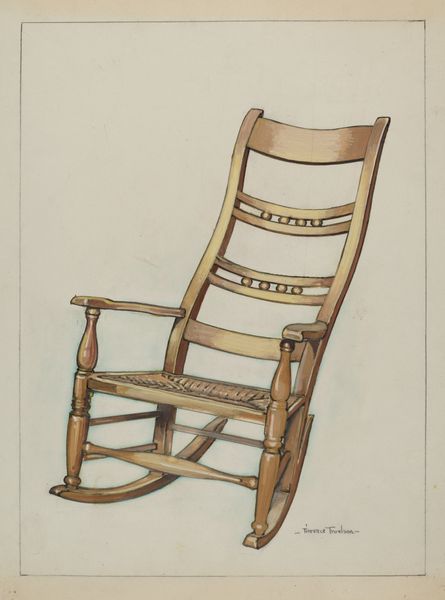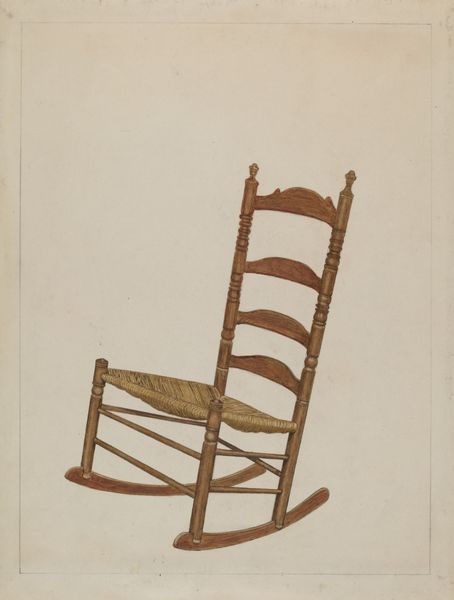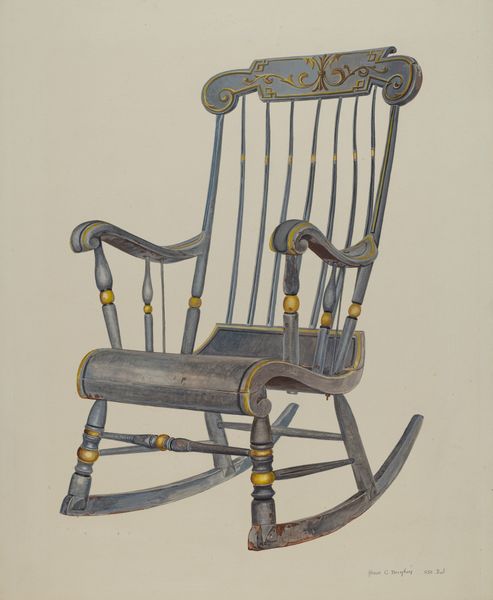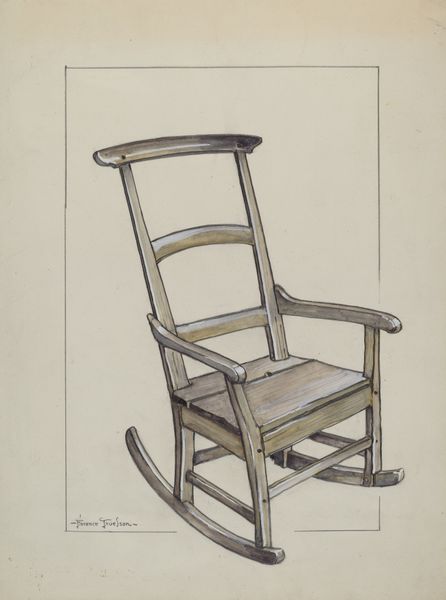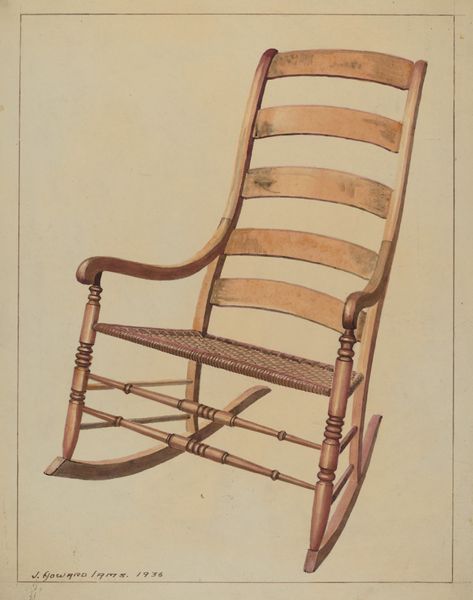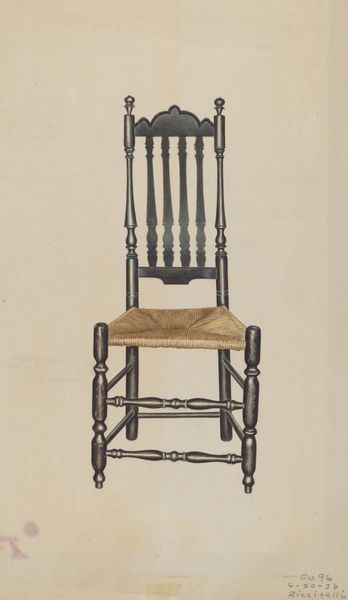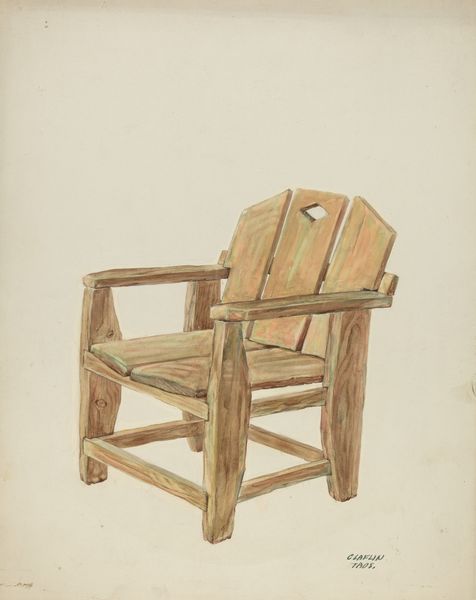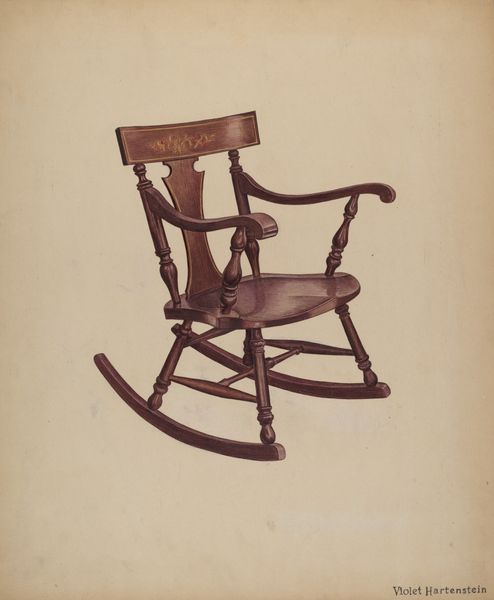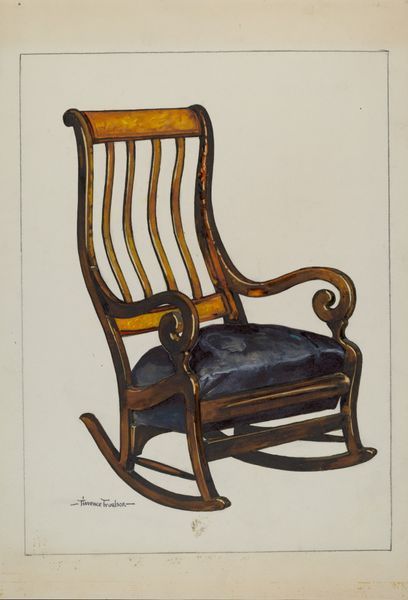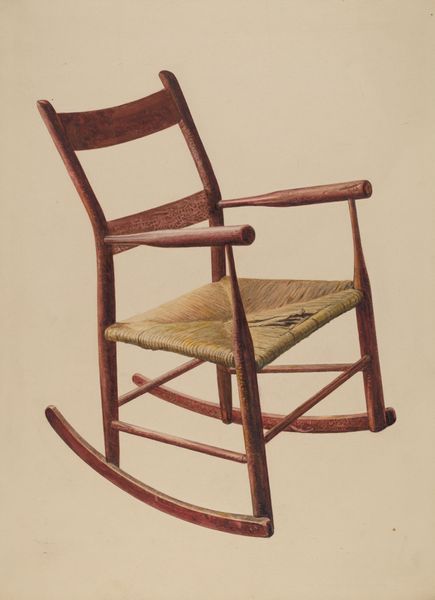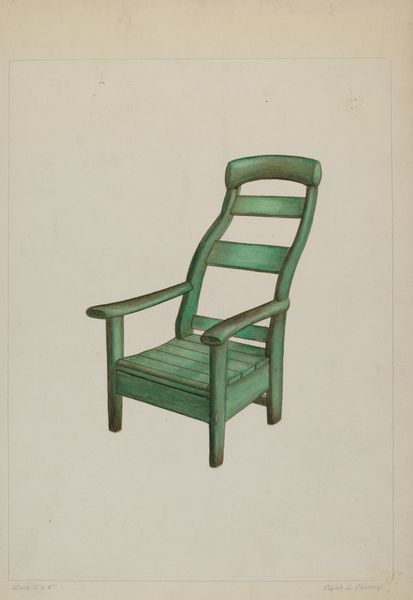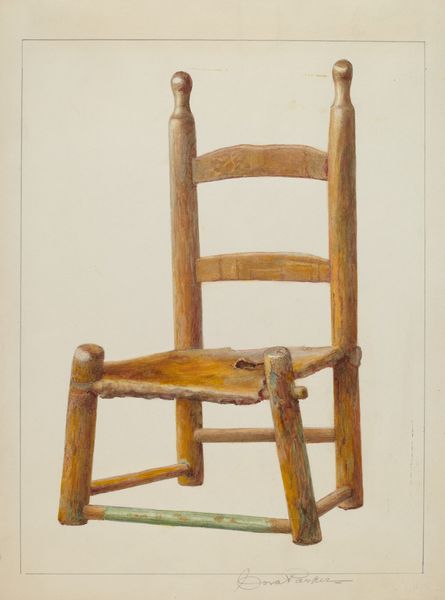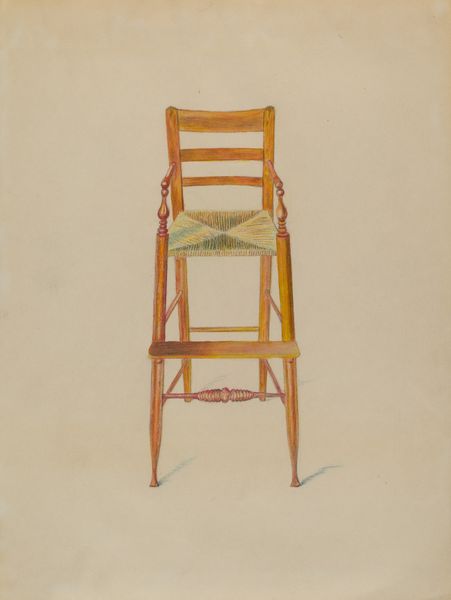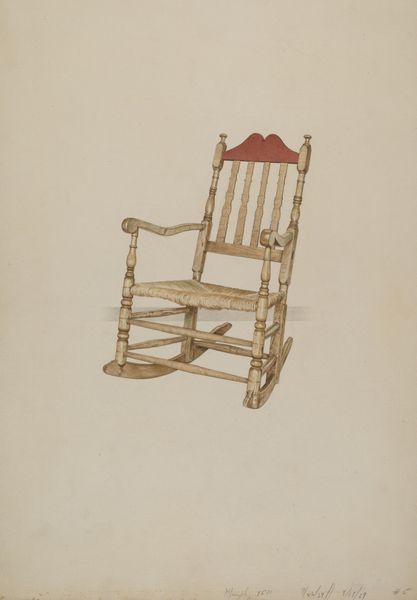
drawing, coloured-pencil
#
drawing
#
coloured-pencil
#
landscape
#
coloured pencil
#
realism
Dimensions: overall: 35.4 x 24.4 cm (13 15/16 x 9 5/8 in.) Original IAD Object: 43 1/2"high; 23"wide
Copyright: National Gallery of Art: CC0 1.0
Curator: We're looking at Florence Truelson's drawing, "Chair with Head Rests," dating from around 1937. It’s a study in coloured pencil. Editor: My initial impression is of something so familiar, so ordinary, elevated almost to a place of reverence. Like an altar for relaxation. Curator: That's an interesting take. Truelson really focuses on the craft here, the visible joinery, the hand-turned spindles. She gives importance to the materiality of the piece, what’s evident of the process of furniture making. Editor: Yes, and the subtle washes of colour she uses to depict the cushions. That blue feels incredibly calming, almost medicinal. The attention to texture, like you said, is almost tactile; you can feel the fabric and the worn smoothness of the wood. It also highlights the intersection of industrial production with human craft. The furniture is the perfect medium for exploring labor, as such items must go through different phases of manual manufacturing, where human error may come in place. Curator: Truelson seems interested in imbuing an everyday object with dignity. It makes me wonder about the owner. Did this chair cradle someone through illness? Witness a lifetime of stories whispered in its cushions? The colored pencil rendering, for me, gives off warmth. This speaks of the material world made sentimental. Editor: That’s lovely. It certainly could hold lifetimes. But in contrast to what is implied with the notion of “landscape," perhaps this furniture drawing explores how our relationship with landscape also goes through intimate domestic rituals. Like knitting on a chair, or contemplating nature from inside of your domestic space. Truelson’s landscape suggests how interior spaces also hold complex negotiations of the human experience. Curator: I can almost hear the rhythmic creak of the rocker as I think of your observation, and how memories inhabit even these objects of leisure. Thank you. This makes me imagine the past life of domestic pieces and landscape imaginaries. Editor: Thanks to you. Now, I think I need a rest in a rocking chair to consider these nuances even more deeply!
Comments
No comments
Be the first to comment and join the conversation on the ultimate creative platform.
